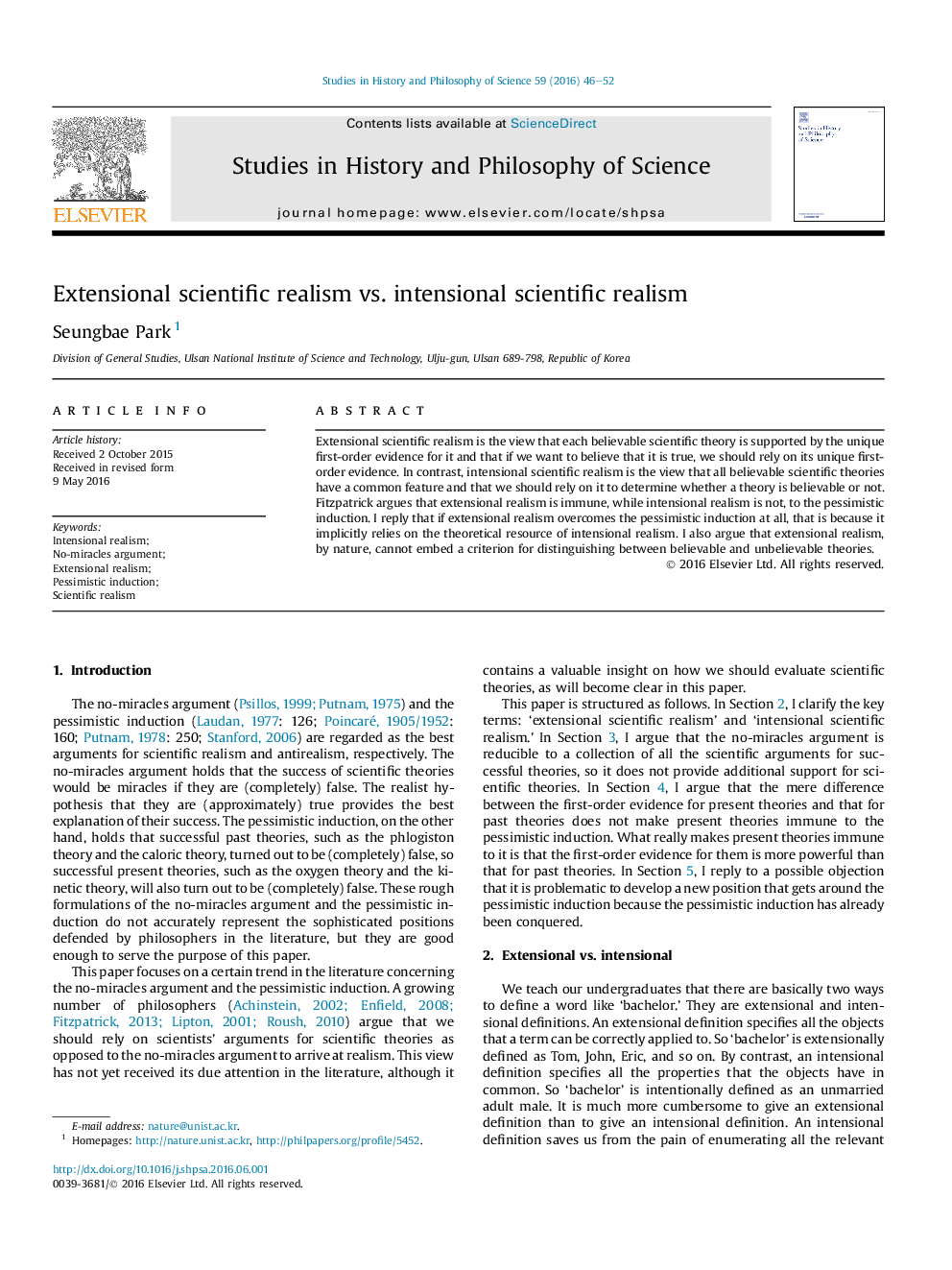| Article ID | Journal | Published Year | Pages | File Type |
|---|---|---|---|---|
| 1160318 | Studies in History and Philosophy of Science Part A | 2016 | 7 Pages |
•The no-miracles argument is reducible to a set of all scientific arguments.•What counts is not merely different evidence but better evidence.•We should evaluate scientific theories not collectively but individually.
Extensional scientific realism is the view that each believable scientific theory is supported by the unique first-order evidence for it and that if we want to believe that it is true, we should rely on its unique first-order evidence. In contrast, intensional scientific realism is the view that all believable scientific theories have a common feature and that we should rely on it to determine whether a theory is believable or not. Fitzpatrick argues that extensional realism is immune, while intensional realism is not, to the pessimistic induction. I reply that if extensional realism overcomes the pessimistic induction at all, that is because it implicitly relies on the theoretical resource of intensional realism. I also argue that extensional realism, by nature, cannot embed a criterion for distinguishing between believable and unbelievable theories.
